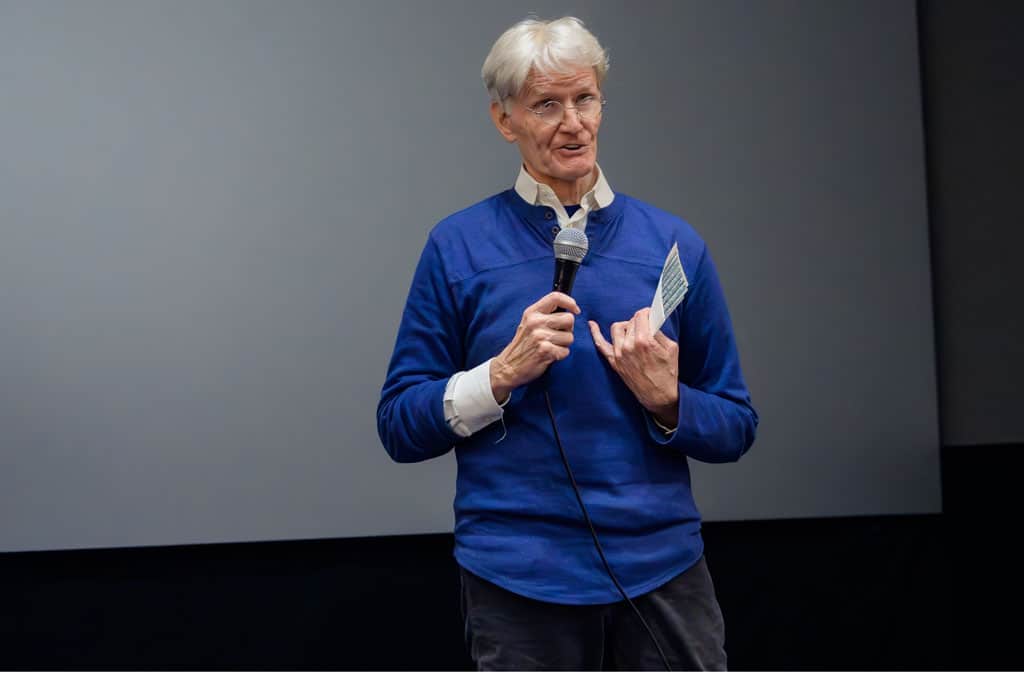Confessions of a CEO: My Four-Pronged Challenge to Change Corporate America

I understand the outrage at corporate America that boiled over after the shooting of UnitedHealthcare CEO Brian Thompson in December, and the anger many Americans feel toward corporate leaders. I’ve made it my mission to change how corporate America operates through a warm-hearted, tough-minded approach born out of my own experience as a CEO.
In our film, “Confessions of a CEO: My Life in an Out of Balance World,” we struck a balance to explain corporate America’s positives: They provide jobs and drive innovation. And each sector has their pluses: Big Pharma saves and extends lives, the defense industry protects us, Big Food provides food for a growing population. Yet far too many corporate giants significantly overreach.
The ratio of CEO pay compared to the average worker has skyrocketed from 20-1 in the 1960s to 300-1 today. It is unconscionable that CEOs feel they deserve that kind of disparity in pay.
To some degree it feels like a return to feudal days when the nobles or lords owned the land and the peasants worked the land for the lords, getting the scraps. This is resulting in a slow yet steady reduction of the middle class, while the upper class and lower class has increased. The top 1% controls over 12 times more wealth than the bottom 50% of the population combined.
Disrespect of employees is too widely practiced, from mistakes never being owned by the C suite to requiring workers to be on the clock an unhealthy number of hours. CSI (customer satisfaction index) ratings have also fallen, with companies fooling customers with hidden fees, subtly reducing the sizes of products while keeping the price the same, and hiding unhealthy ingredients. It virtually takes a microscope to read the ingredients on labels.
Also, the percentage of corporate America’s net profits going to charity nosedived from 2% in the 70s to 0.8% today. The sum of skyrocketing CEO pay, declining employee morale, customer dissatisfaction, and far less community giving results in horrific societal side-effects.
How can this be corrected? The public and corporate shareholders need to demand that companies provide more transparency beyond just posting their required financial numbers. All companies should publish these four metrics:
- Ratio of CEO pay compared to average worker pay
- ESI (employee satisfaction index)
- CSI (customer satisfaction index)
- CSR (Corporate Social Responsibility), their percentage of net profit giving to charity and community
My Journey to Conscious Leadership
I left corporate America (Shell Oil Company) long ago in 1976 due to poor treatment, disrespect, and management not trusting my opinions. After being forced to pay for my bosses’ presidential suite, I swore I would never work for anyone again.
Making that happen was easier said than done. Finding the right opportunity, selecting a minority partner, and getting the money after being turned down by eight banks were only the first steps. I remember my first day off of Shell’s payroll: With no paycheck coming on the 1st and 15th of each month, no company car, no 401(k), as my kids were buying an ice cream cone at Dairy Queen I wondered where the money would come from. It was months without a paycheck; skimping on what we were eating and replacing my nice company car with a junkyard car were part of our family’s austerity program.
With my minority partner Don Gullett I started a company in the unsexy yet opportunity-filled tire industry. As “Head Coach,” I worked with Don as we grew Tires Plus Stores into a quasi-national company with 150 stores, 2000 employees, and $200 million in annual sales ($350 million in today’s dollars).
After selling Tires Plus in 2000 I wrote three books, became a national speaker to some of America’s largest corporations, and mentored American influencers such as Dan Buettner (Blue Zones founder), RFK Jr and his Waterkeeper Alliance organization, and Deepak Chopra and his enterprises. I brought to each of them, and their fledgling organizations, healthy and sound business principles I had developed at Tires Plus.
Also, with my son, Trent, we started a venture capital fund, The Gramercy Fund, where I have been CEO and am currently Chairman of the Board. We have invested in over 100 companies and shared these same business practices with them.
Finally, based on my journey getting out of corporate America and beyond, I am the subject and director of the recently released documentary feature film, “Confessions of a CEO,” a crackling critique of corporate America told through the lens of my life: the good, the bad, and the ugly. After an eight-city theatrical run, “Confessions” is now streaming on Amazon Prime Video, Apple TV, and other platforms.
Leaving the safety and security of my corporate America job to become an entrepreneur at age 29 was far more treacherous and traumatic than I could have ever imagined. Yet the learned problem solving, self esteem, and control of my own destiny — along with the chance to share these lessons — made it worth the heavy price paid.
Written by Tom Gegax.
Have you read?
The World’s Best Medical Schools.
The World’s Best Universities.
The World’s Best International High Schools.
The World’s Best Business Schools.
The World’s Best Fashion Schools.
The World’s Best Hospitality And Hotel Management Schools.
Bring the best of the CEOWORLD magazine's global journalism to audiences in the United States and around the world. - Add CEOWORLD magazine to your Google News feed.
Follow CEOWORLD magazine headlines on: Google News, LinkedIn, Twitter, and Facebook.
Copyright 2025 The CEOWORLD magazine. All rights reserved. This material (and any extract from it) must not be copied, redistributed or placed on any website, without CEOWORLD magazine' prior written consent. For media queries, please contact: info@ceoworld.biz








